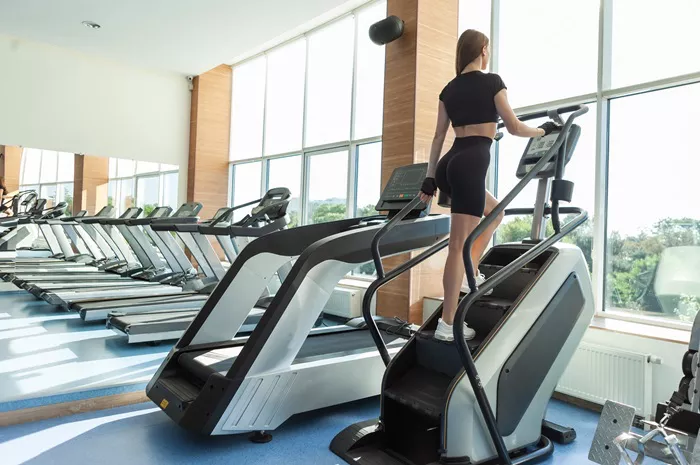On March 29, 2025, the University of Hong Kong (HKU) held the official closing ceremony of the Fitness Buddy Initiative for the Blind (FBI), an innovative program designed to foster inclusion, well-being, and leadership through fitness partnerships between students and visually impaired individuals. The event took place at the Chong Yuet Ming Cultural Centre on HKU’s Pok Fu Lam campus and marked the successful conclusion of a months-long community engagement project that brought together students, athletes, and individuals with visual impairments.
Launched by HKU’s Centre of Development and Resources for Students (CEDARS), the program was organized in collaboration with the Centre for Sports and Exercise (CSE), the Hong Kong Network for the Promotion of Inclusive Society (HKNPIS), and Blind Vision International (BVI). These partnerships were instrumental in shaping a multifaceted initiative that integrated physical activity, social connection, and service learning.
A Vision of Inclusion through Fitness
At the core of the FBI program was a belief that inclusive communities can be built through everyday activities such as exercise and shared goals. The initiative paired over 60 HKU student volunteers with more than 30 visually impaired individuals from the community—particularly elderly people living with blindness—to become “fitness buddies.” Together, these pairs engaged in regular physical activities, from walking and stretching to guided fitness routines. For the visually impaired participants, the presence of a sighted partner not only provided physical assistance but also created a sense of companionship and mutual respect.
The program offered students an invaluable opportunity to experience inclusive service leadership, build empathy, and understand accessibility from a personal perspective. Through their involvement, students gained insight into the challenges faced by people with disabilities while also contributing to their physical and emotional well-being.
Celebrating Shared Achievements
The closing ceremony served as both a celebration of individual and collective accomplishments and a recognition of the spirit of collaboration that made the project a success. The event opened with a welcome address by Professor Samson Tse, Dean of Student Affairs at HKU. Professor Tse highlighted the initiative’s core values of community inclusion, health equity, and student development, emphasizing how programs like FBI exemplify HKU’s commitment to experiential learning and civic engagement.
“By partnering with members of the visually impaired community,” he noted, “our students have not only helped others but have also grown as empathetic leaders. This project is a powerful example of how service and learning can be meaningfully combined.”
Following Professor Tse’s remarks, Ms. Linda Lam, SBS, Chairperson of the Equal Opportunities Commission, delivered a keynote address on the importance of disability inclusion in all areas of society. Ms. Lam praised the initiative for its hands-on approach to inclusion, noting that such programs play a crucial role in changing public perceptions and advancing equality.
Inspiration from the World of Sports
One of the highlights of the ceremony was a special sharing session with Mr. Chu Kin Wah, a retired para-triathlete and former representative of the Sports Federation & Olympic Committee of Hong Kong, China. In a relaxed and candid conversation, Mr. Chu shared moments from his athletic journey, offering insight into the determination, discipline, and mental strength required to succeed in adaptive sports. He recounted how sport had empowered him, not just physically but also emotionally and socially.
“Being a para-athlete gave me a voice,” Mr. Chu said. “It showed me—and the world—that disability does not mean inability.”
His words resonated deeply with students and audience members, reinforcing the idea that sports can be a powerful tool for empowerment and social change.
Personal Stories of Impact
The ceremony concluded with remarks from Mr. Mo Kin Wing, MH, Dean of the Hong Kong Para-Triathlon Academy and one of the program’s participants. Mr. Mo shared his personal experience working with his student fitness buddy, describing the sessions as “energizing, affirming, and deeply meaningful.” He reflected on how the initiative bridged generations and abilities, creating a space where everyone could contribute and grow.
“In this program, I wasn’t just receiving help,” Mr. Mo explained. “I was also sharing my life experience, my story, and my hope. That exchange has been priceless.”
A Model for Future Programs
The success of the Fitness Buddy Initiative for the Blind has prompted discussions about future editions of the program and the potential to expand its model to other groups and universities. Organizers from CEDARS expressed enthusiasm about building on this foundation and deepening partnerships with local and international organizations committed to inclusive health.
“CEDARS aims to support students in developing a global vision and a socially responsible mindset,” said a CEDARS spokesperson. “This initiative embodies that goal. We hope to inspire more initiatives that connect academic life with community service, particularly those that uplift marginalized groups.”
A Commitment to Holistic Student Development
This program reflects CEDARS’ broader mission to enrich student life at HKU through inclusive and culturally diverse educational experiences. By facilitating real-world engagement and promoting equity, CEDARS helps students grow intellectually, socially, and emotionally. Programs like the FBI demonstrate how universities can play a transformative role in building more compassionate and connected communities.
The ceremony drew praise from both participants and guests for its thoughtful programming and meaningful outcomes. As the event concluded, many expressed hope that the relationships and lessons formed through the initiative would extend far beyond the formal end of the program.
Related Topics































